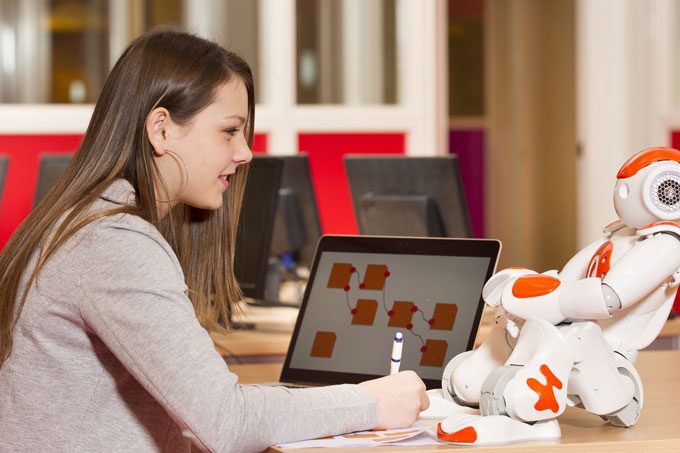Professor Berry Billingsley explains how work at Christ Church is supporting students to ask questions on topics to help their understanding of the world around them.
How do we help children to flourish in a world that is peppered with technologies such as gene editing, smart phones and increasingly humanlike robots? What kind of an education can prepare those in school today for lives and careers as teachers, doctors, nursery staff and engineers in the imagined and unimagined realities they will encounter on the other side of their exams?
These are difficult questions for those of us working in school education. They are particularly difficult for those designing and teaching science education. Most of the time children spend in a science class today is focused on answering questions we already know how to answer. A typical lesson begins with a question that leads to an experiment, some results and a conclusion. Most students work out that if they are struggling with writing up – they only need to turn the page of the text book to see what they should have found out.
But the questions that matter increasingly today are not of that type. Take the question – can a robot ever truly have a moral conscience? Should we trust a robot with making moral decisions? How do we know if a robot is wise or maybe even wiser than the wisest among us today?
What kind of a lesson can and would help a young person with how to answer a question like that?
Large-scale surveys in schools by researchers here in the LASAR (Learning about Science and Religion) team have shown that students hold back questions that they suppose would be ‘off-topic’ and/or culturally sensitive.
But whether or not the task is difficult, the need to come up with strategies has never been greater. That’s why Canterbury Christ Church University is leading a new international beacon area of research called, “Epistemic Insight and Intellectual Curiosity”.
Epistemic insight is the know what and know how that is needed to ask and address a big question. It includes understanding that different disciplines provide different types of answers – but those answers may not necessarily be mutually incompatible. Intellectual curiosity is to do with the aspects of our characters that mean we are curious and like to be sure that the answers we are getting are as good as they can be.
If you are intrigued … the current edition of School Science Review is a special edition that has a series of articles about Epistemic Insight. You can also visit for updates: http://lasarcentre.com/
Berry Billingsley is Professor of Science Education in the Faculty of Education and principal investigator of the LASAR (Learning about Science and Religion) Research Project.
LASAR have the following events early next year:
- #LearningFirst Conference Canterbury 27th January 2018, keynote talk: Professor Berry Billingsley
- HEAC (CPD Conference) 9th February, keynote talk – Professor Berry Billingsley. Let’s talk! What science tells us about the teenage brain – and what teenagers say about neuroscience! Find out why epistemic insight can help students find the “person” behind the “brain” – strategies and questions for teachers to enrich students’ understanding of enquiry within and across subject boundaries.
 Expert comment
Expert comment Jeanette Earl
Jeanette Earl 1401
1401


